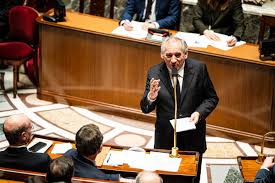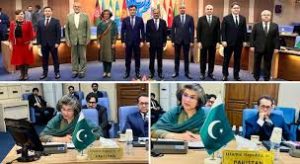France’s PM faces confidence vote with second attempt to force through budget

Paris: The French prime minister, François Bayrou, is preparing to ignore threats of a no-confidence motion and force the 2025 budget bill through without a vote.
With no majority in the Assemblée Nationale, the centrist politician has little choice but to use the constitutional measure, known as the “49.3”, on Monday to pass the legislation aimed at reducing the country’s soaring deficit.
The hard-left France Unbowed (La France Insoumise or LFI) has said it will lodge a confidence vote immediately afterwards, a move supported by the country’s ecology party (EELV) and Communist party (PCF) but not by the Parti Socialiste (PS).
The far-right National Rally party (RN) is yet to announce whether or not it will throw its weight behind the move.
LFI and the RN lodged censure motions in December after the then prime minister, Michel Barnier, used the 49.3 to try to push through the 2025 budget bill, forcing his resignation and the collapse of the government after less than three months.
Bayrou, who was appointed shortly afterwards, presented his budget bill and the social security bill to the lower house on Monday afternoon after the text was approved by a cross-party committee last week.
If Bayrou uses the 49.3 to push through the bill, opponents have 24 hours to lodge a censure motion that must be voted on within 48 hours. If it succeeds, the bills are rejected, the government collapses and France returns to a political impasse.
The current deadlock was caused by the decision off the president, Emmanuel Macron, to dissolve parliament and hold a snap general election in June after his governing centrist party was defeated in European elections.
In the subsequent general election, the Nouveau Front Populaire (NFP), a coalition of left-wing parties including the PS, LFI, PCF and EELV, won the highest number of seats.
The result left the lower house of parliament divided into three roughly equal blocs – left, centre and far right – none of which has an absolute majority. A new legislative election cannot be held until June.
On Monday, the governor of the Bank of France, François Villeroy de Galhau, told FranceInfo radio that adopting the budget bill would be “a first step in the right direction” to end economic uncertainty.
“To begin to reduce that uncertainty, France needs a budget … one that reduces the deficit,” Villeroy de Galhau said adding that the priority was to get a grip on public spending.
If the budget bill is passed, it will come into effect in the second half of the month.





